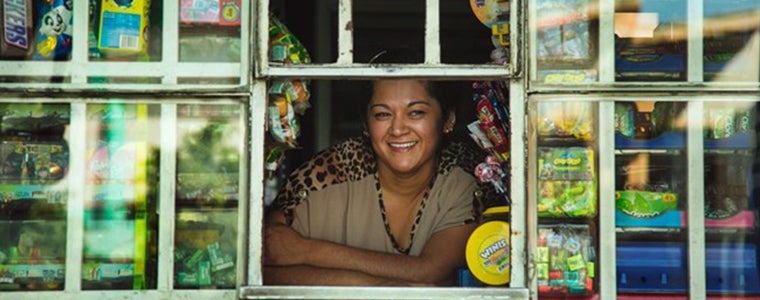Low-income communities in Latin America and the Caribbean do not have broad access to clean energy and energy efficient technologies; they are also disproportionately affected by the effects of climate change.
Small farmers in areas experiencing more frequent droughts, business owners looking to increase their competitiveness with energy-efficient products, and low-income households that seek access to small-scale energy sources all need solutions— and these solutions cost money. However, the microfinance institutions that supply the banking services on which most of these entrepreneurs depend have little to no experience financing these types of investments.
Enter EcoMicro
EcoMicro seeks to bridge this gap with a program designed for Latin American and Caribbean microfinance institutions (MFIs). EcoMicro’s purpose is to help MFIs develop green finance products so that micro, small, and medium enterprises and low-income households can access clean energy, increase their energy efficiency, or adapt to climate change. This innovative program also provides benefits for MFIs themselves, as it helps them green operations and provides them the capacity to analyze their loan portfolios’ vulnerability to climate change.
EcoMicro will provide a total of $7 million in grants to 12 MFIs across the region. Funds are used to develop, market, and launch green finance products in each MFI, and they leverage the MFIs’ balance sheets – unlocking private funds that would not otherwise be available for climate activities. Demand for EcoMicro has been high: 100 institutions in the region have competed for the 12 grants, demonstrating that the industry sees green finance as a growth area. Interest in adaptation lending has grown in each successive selection round from 31% to 66% of applicants seeking to develop adaptation products.
Six EcoMicro projects, co-financed by the IDB’s Multilateral Investment Fund (MIF) and the Nordic Development Fund (NDF), are already underway. With the support of EcoMicro, Te Creemos from Mexico and Caja Arequipa from Peru are commercializing green finance products for clean and efficient energy solutions such as solar water heaters and efficient refrigerators that can reduce operational costs through energy savings for microentrepreneurs and low-income households. FDL in Nicaragua, Diaconia in Bolivia, and Sur Futuro in the Domincan Republic are developing loan and microinsurance products to support small farmers in adapting their crops, irrigation systems, and product mixes to climatic effects, and hedging against future losses.
Six other projects are being developed in El Salvador, Colombia, Paraguay, Bolivia, and Jamaica.



Leave a Reply